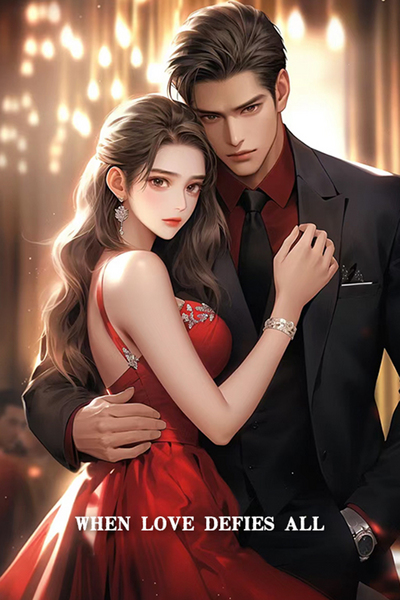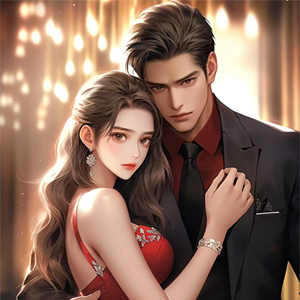Kang had once dated a girl from an art academy, a pianist with a quirky temperament who didn't care for money and exuded that kind of ethereal, "not of this world" aura that people often associate with artists.
Back then, to win her affection, Kang had gone to great lengths, even buying a piano worth over 6 million yuan from Germany. But not only was the gift rejected, but she had also scolded him, telling him to be sincere and not to use money to belittle people.
At the time, Kang didn’t understand why spending money wasn’t seen as sincere. After all, hadn’t capitalists built their reputation on the notion of being generous? And if a "black-hearted" capitalist was willing to spend 6 million on you, wasn’t that already a sign of genuine affection?
From that experience, Kang developed a stereotype: artists, especially those who played the piano, were supposed to be uninterested in money. Art, after all, was supposed to be noble, transcendent, above the mundane. They should be people like Van Gogh, wandering in a small town, a little downtrodden but still artistic.
In Kang's mind, artists were supposed to be sharp, intense individuals who pierced through both their own inner struggles and the world around them. They didn’t settle for mundane things like teaching beginners to earn money. They weren’t supposed to have soft, feminine qualities or humble themselves to make a living.
But Summer was different.
Her softness and humility were a stark contrast to the sharpness he had come to associate with artists. She wasn’t an aloof, unreachable figure; she was practical, earning her living by teaching, even doing small side jobs like tuning pianos.
His worldview expanded further when one of the adult students asked after class, "Does the teacher know how to tune pianos?"
"Yes," Summer replied.
"I just bought a secondhand piano, but I’m not sure if it’s in tune. Would you be able to help me tune it?" The student was attractive, and Kang couldn’t help but notice her surgically enhanced chin and nose.
"Of course," Summer agreed, as she always did. After all, these students were valuable to the art center.
Kang, now a passenger in the car, was amused as he observed the conversation. The woman was talking about her own child, who was around the same age as Summer’s son.
"My son is three," the student said. "Your child is about that age too, right?"
"He’s four," Summer replied, her voice soft as she patted her son’s head.
"He’s so well-behaved, never cries or makes a fuss. My little one is a real rascal," the student continued, chuckling.
Kang couldn't help but laugh quietly to himself. Summer, so gentle and patient with her child, seemed worlds apart from the "artist" he had imagined in his head. Her quiet demeanor, her way of nurturing her son, was a far cry from the sharp, aloof figures he once thought all artists should be. She was a warm, everyday mother, not the stereotype he had clung to. And somehow, that made her even more fascinating to him.
The female student, on the other hand, didn’t mind at all. She was simply drawn to Summer’s gentle and nurturing nature. It was clear to her that Summer had an aura of kindness that made her stand out as a teacher.
"By the way, I come here every day to learn, but I’ve never had a chance to meet you before, Summer." The student smiled warmly.
Kang couldn't help but think, You come every day and still play like that? Maybe it’s time to give up on the piano. He was rather blunt in his thoughts, something typical of his business-oriented mindset.
"I’m part of the kids’ group, and most of my classes are in the afternoons after school or on weekends," Summer replied.
The student nodded, understanding the conflict in their schedules. "Then our times must have completely overlapped. I usually come on weekdays for my lessons."
Summer smiled, but there was a faint hesitation as she replied, "I usually work weekdays as well. But if you’d like to change teachers, that can certainly be arranged."
She didn't seem upset at the suggestion, but it made Kang wonder whether Summer would actually prefer a change, given how she had been so accustomed to working with children. It was a rare moment for him to see her interact in this way—polite, calm, and flexible to her students' needs.
Kang, who had been used to dealing with clients who were always direct and focused on results, felt a strange contrast between his world and Summer’s. He found himself observing how she balanced all the different roles in her life with such grace.
As they entered the luxurious mansion, Kang couldn't shake the feeling that the grand piano in the room looked eerily familiar. It wasn’t just any piano—this was a high-end, custom-made model, the kind only serious pianists or wealthy collectors would own.
His eyes narrowed as he studied it more closely, a faint memory stirring in his mind. It couldn’t be… Could this be the same piano I tried to buy for my ex-girlfriend years ago? He recalled that he had purchased a similar one—a six-hundred-thousand-dollar model from Germany, the very piano he had sent back after his ex-girlfriend rejected it, accusing him of trying to buy her affection with material things.
The resemblance was uncanny.
His thoughts swirled in confusion, anger, and disbelief. Here, before him, was a rich woman who not only owned a luxury piano but was also hinting at hiring Summer privately, bypassing the art center entirely. To Kang, it seemed like an opportunity that had slipped right through his fingers once more.
He was furious. This is what happens when you aren’t paying attention. A prime client, a golden opportunity, and here I am, stuck as a passive observer. Meanwhile, Summer... she’s just too oblivious to see it.
Kang’s emotions were a mix of frustration and self-loathing as he followed behind them into the room, silently seething. Meanwhile, the woman continued chatting with Summer, her tone warm and casual, clearly not sensing any tension in the air.
"Summer, I have a few other things I'd like to discuss regarding the piano and the lessons," the woman said, pulling out a notebook and making a few notes. "Maybe we can work something out privately after all."
Summer smiled politely but still seemed reluctant, her discomfort growing in the face of the woman's insistence. She’s not wrong, Summer thought. I could definitely make extra money here, but... it doesn’t feel right to go behind the center’s back like this.
As the woman rambled on about scheduling and payment, Kang’s thoughts drifted to the piano again, his mind racing over the money he had once spent on it. I could have had that connection, that influence. He could feel his frustration mounting. Every turn of events seemed to remind him of past mistakes, of opportunities he hadn’t seized, and now it seemed like Summer might unknowingly be slipping into a business relationship with someone far wealthier than he had ever imagined.
As he watched Summer, a part of him wanted to step in, to steer the situation toward what he saw as the "right" path. But another part of him knew she wouldn’t appreciate being told what to do. Summer was proud, independent, and had her own way of seeing things—one that didn't always align with his more calculating, business-minded approach.
It was a moment of realization for Kang, a recognition that the world he inhabited wasn’t the same one Summer lived in.











Comments (0)
See all